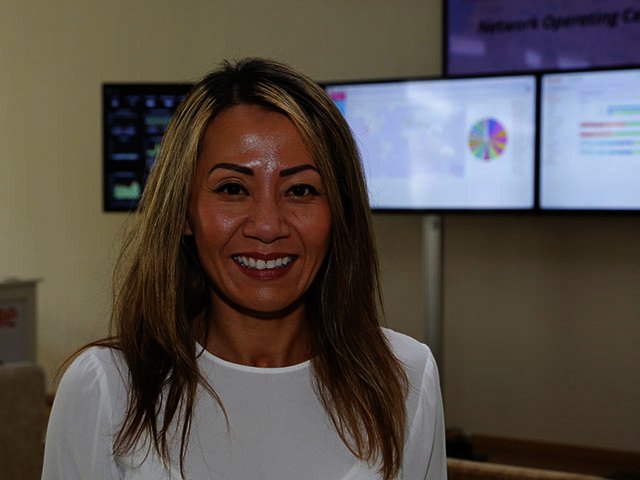Interview with Aruba Network’s Janice Le: A Whole New World of Work
By Ryan Noik 29 June 2018 | Categories: interviews
One of the highlights to come from the Aruba Atmosphere event, held in Croatia earlier this month, was the chance to sit down with Janice Le, the vice president of global marketing at Aruba Networks, a Hewlett Packard Enterprise company, and do a deep dive into the modern workplace. Also explored was the culture of work, how the working world is changing and how technology is impacting on jobs and industries alike, and what people can do about it.
To start with, Le made a bold assertion that the idea of work/life balance needs to go away. She explained that under the current definition, it implies that people have to trade one for another – either they are living, or they are working, and the latter comes at cost to the former. Rather, she explained, work and life should blend into a unified whole, in which work is part of how one lives one’s life, rather than something one does doing prescribed hours
A bridge across two worlds
This, she continued, is being made possible by the fact that the gap between knowledge workers and non-knowledge workers is starting to close, with almost everybody being a knowledge worker nowadays. She defines a knowledge worker as anyone who works with digital information in some capacity, as opposed to a manual labourer.
“Even if you look at factories, as factory floors get more automated and more connected, the people who need to operate the machines are digitally enabled. They are out there on the factory floors with a mobile device looking at analytics and preventative maintenance information, so they are using knowledge to do their work even if their work has some element of labour,” she elaborated.
She enthused that once work becomes more digital, the idea that it only happens at a specific place at a specific time, gets blown away completely. Indeed, it is very feasible for a manager to check in on what it is happening on the factory floor over the weekend from their home using an app, and address any issues outside the normal working hours. Le points out that on the reverse side, if an employee needs to take a two-hour break to go to a dentist appointment, their employer shouldn’t care because they could still get their job done after hours.
The culture conundrum
This flexible approach to work, however, is not always so easily accepted, with many companies in a variety of industries still locked into the idea that work begins at eight, ends at five, while insisting that employees need to be present and visible at a workstation. This, which Le dubs the “command and control culture,” is based on how much (or rather, little) trust employers have in their people.
However, such an old school approach may well be racing towards extinction. Le pointed out not only is it difficult to keep employees motivated when they are “under lock and key” but they are more likely to compare such companies to other employers and seek out greater freedom and a better environment in which to work. She warns that this will ultimately result in old-school employers struggling to secure talent and survive.
Rising to the challenge
Le added that the global economy is also making it more essential for employers to adopt a more flexible working structure. She noted that if the only jobs that people can get are in these command and control cultures, then companies could have a fair blend of very skilled, motivated and productive people.
“But in a global economy, if you are an employee in Europe or Africa, you could work for a US company. That company will employ you, allow you to work from your home according to your hours. All of a sudden the global economy now changes the game for those old school employees who can’t lock the population in to one type of work environment,” she explained.
What’s your next gig?
Also changing how, and for whom we work, is the gig economy. But is the gig economy just a fancy terminology for freelancing? Not exactly. Le explained that on the surface the gig economy is not that different from freelancing, with workers setting their own hours and having the freedom to pick and choose what they work on. “The idea of freelancing today is that of working on a per project basis, and every time I need to sign up a new project I need to go find a new client,” she elaborated.
However, in the gig economy, workers have the support and backing of a large corporation as well as access to a steady stream of work. A prime example of this is Uber, with drivers deciding which passengers they take, what days they work and how many hours of the day. That, as any freelancer will tell you, can take a considerable amount of the stress of having to constantly hunt for new work and new clients, as well as deal with the cyclical nature of freelancing, which can be a strain on one’s financial security.
Clearly though, work that is part and parcel of life, with workers enjoying greater freedom from the nine to five grind, is part of where work is heading.
Most Read Articles

Have Your Say
What new tech or developments are you most anticipating this year?



